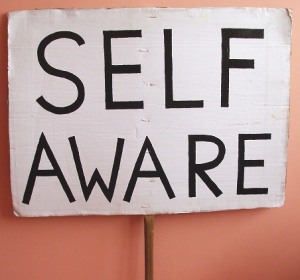Read Your Feelings & Know Your Needs
 Contrary to what some people think, feelings have tons of meaning. Feelings exist for a purpose. Not just to add a little color to an otherwise routine predictable day. No way.
Contrary to what some people think, feelings have tons of meaning. Feelings exist for a purpose. Not just to add a little color to an otherwise routine predictable day. No way.
Ultimately, feelings exist in order to tell you whether or not certain ‘needs’ you have are being met. We all have a bunch of needs, not only the physical ones which often demand most of our conscious attention.
Beyond our basic needs for things like sleep, warmth, food, water, air, and of course, love, there are a variety of different psychological and emotional needs that many people don’t even know they have. For example, needs for security, safety, acknowledgment, relaxation, adventure, fun, a workable identity, friendship, etc.
To put it plainly, life changes when you become aware of your psychological and emotional needs. Why? Think about it. If you know what you need, you know yourself more deeply and more intimately than you would if you didn’t have that knowledge and awareness. You’ll become aware of the driving forces behind what you think, feel, and do. And that’s not all.
You also have a bit of a road map, a GPS for your ‘inside life,’ so to speak. Arranging your world so that your ‘needs’ get met, at least most of the time, will inevitably create a very happy human being. As opposed to going through life unaware of what matters to you and why you feel one way or another.
On a fundamental level, you can assume that positive feelings are telling you that your needs are being met, at least for the moment. Negative feelings would indicate the opposite. Of course learning to relate to our feelings in this way will require a little practice. Don’t forget, you’re going from ignoring your feelings or defending against them to valuing them and using them to find things out about your self and guiding your own behavior.
There are still a lot of people who don’t think of their feelings as sign posts for a better working understanding of what really matters as individuals. Of course, the simplicity of this formula: your feelings telling you something about your personal needs, gets a little bit complicated by the fact that some of the needs you have in adulthood may not get met.
To fine tune our formula, we would have to admit that some of the older needs we bring into adulthood may have little chance of being met. I’m specifically talking about ‘childhood needs’ or needs from the adolescent time of our lives. If you didn’t get certain of your early needs met because of some limitation in a parent’s ability to meet those needs, chances are you won’t be satisfying those archaic needs in your adulthood relationships either.
Of course, as we learn how to take better and better care of ourselves as adults, we will get to do for ourselves some of the things we needed done by the people who disappointed us. This is autonomous psychological maturation. But still, some of those earlier needs for love, that were supposed to be met by someone else during that earlier time of our lives, have little chance of being satisfied by any one, including what you can do for you.
The reason is because they are from a different era of your life, and it will be very hard to find an adult who will give you what you needed but didn’t get growing up. Sure, you’d be able to find a few adults who would certainly ‘role play’ being your parent or some such thing usually for an emotional price of some kind.
But most people I’ve met who tried this were very disappointed in the end and had to eventually grieve the limited or absent love in their early lives anyway. I say, get the grieving over with as soon as possible, so you can move on and enjoy the healthy love relationships that are possible in adulthood.
Comments? Welcome. Dr. Tom Jordan
